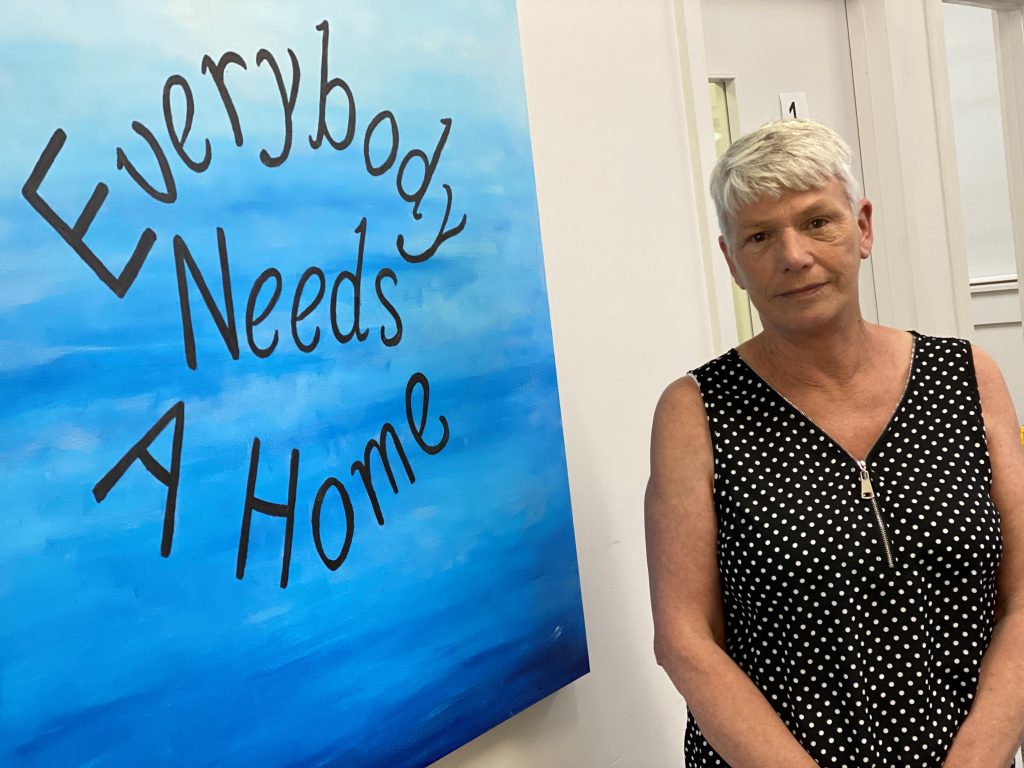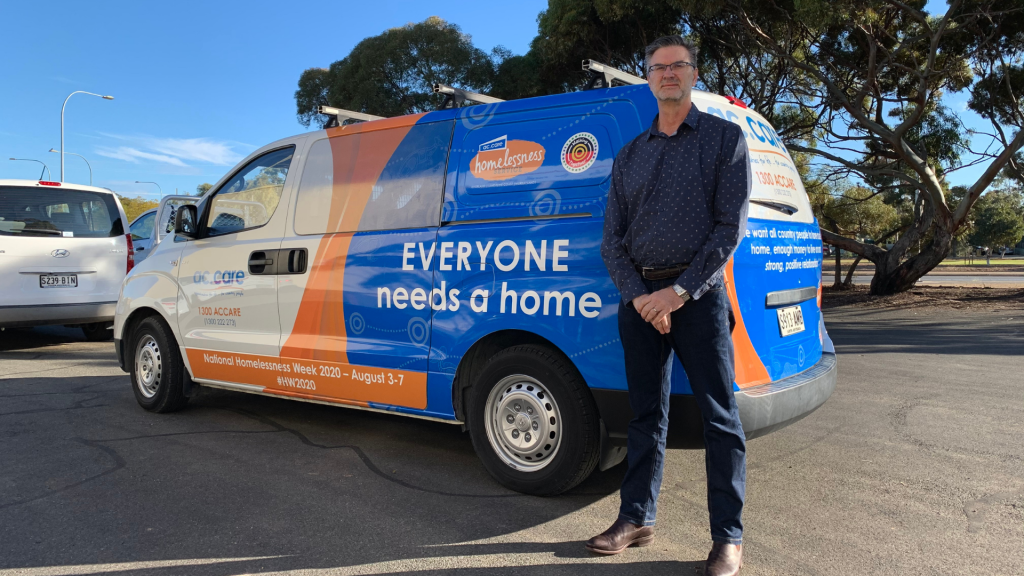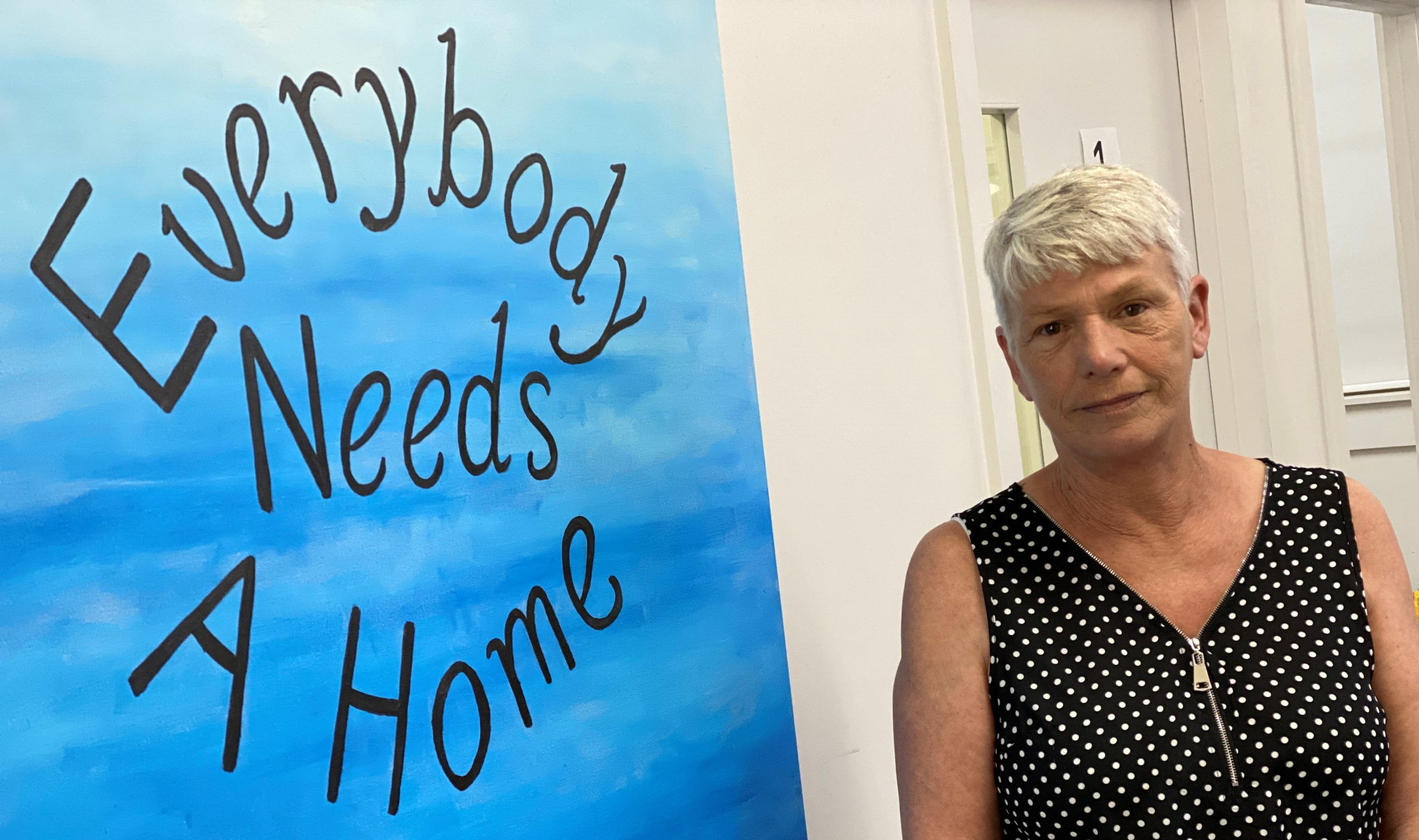COVID-19 and its impact on the housing market has left regional South Australia on the precipice of an unprecedented homelessness challenge, according to regional agency ac.care.
Staff at the agency’s Limestone Coast, Murraylands and Riverland homelessness services have reported a dramatic increase in people in need of support as increased government payments are wound back at the same time as rent costs are stepping up.
“The true impact of the pandemic is now becoming much clearer as the economy rebuilds and affordable accommodation rapidly dries up in our regions, leading to alarming waiting lists for housing,” ac.care chief executive Shane Maddocks said.
“The government must hear the growing consensus in our society that now is the time to increase JobSeeker long-term to a level that is sustainable and allows all people opportunities to afford basic necessities and climb out of the poverty trap.
“Otherwise, despite the best efforts of organisations such as ours, increasing numbers of people may be left unable to afford their rent and with nowhere else to go.
“If this crisis is not averted, these families and individuals could tragically be forced into rough sleeping wherever possible at levels not seen before in regional South Australia, prompting diverse social, health and welfare issues that could be avoided.”

CRISIS LOOMS: ac.care homelessness and community services manager Trish Spark has raised alarm about an increasing number of people contacting the Limestone Coast Homelessness Service unable to secure a rental property or fearing they will be evicted from their homes due to reduced income and increasing rent costs. She said the agency was doing all it could to help people maintain tenancies and avoid homelessness, but a lack of public and emergency housing was making it increasingly difficult to place people in appropriate accommodation.
The number of people seeking emergency accommodation at ac.care’s Limestone Coast Homelessness Service has increased by a third over December and January, compared to the same period in 2019/20, jumping from 48 individuals and families to 71 in need of safe accommodation.
Meanwhile, the number of people seeking emergency relief, often so they can maintain their tenancy and avoid homelessness, leapt from 113 to 205 for December/January – a 44pc increase on figures for the previous financial year.
The Murraylands Homelessness Service has also seen a dramatic increase in people in need of support, securing emergency accommodation for 24 clients over December and January – double the figure for the same period last financial year. Many other people also approached the organisation for support to avoid homelessness and were assisted in various ways.
The emergency relief service delivered from ac.care’s Murray Bridge office also increased support, with the number of clients growing by 28pc from 226 individuals and families in Dec/Jan 2019/20 to 313 for the same period this financial year.
Growing hardship is also clear in the Riverland community, where ac.care provided appointments for 39 people in one fortnight this month at its Berri site, with seven deemed in crisis and in need of emergency accommodation.
“Our staff are seeing the number of people on the brink of homelessness rapidly increasing as people turn to us to avoid or navigate through a crisis,” Mr Maddocks said.
“We are doing all we can to support those unable to afford the cost of increased rent or find a suitable property, however, are approaching a crisis point with emergency accommodation at capacity and simply nowhere available to provide affordable accommodation.”
Founded in Mount Gambier, ac.care proudly works with regional South Australian communities to ensure all country people have safe homes and enough money to live on, providing opportunities to overcome adversity and build a secure future.
“A core part of our work is supporting vulnerable people to maintain or secure tenancies to avoid homelessness,” Mr Maddocks said.
“Last year, our services grappled with new challenges, as did the rest of our society, in the wake of the COVID-19 pandemic, supporting individuals and families as they faced sudden uncertainty over the future of their employment, income and housing security.”
He said significant additional government assistance throughout 2020 had been vital in keeping people safely housed and able to afford necessities, such as enough food to feed their families each day, with agencies such as ac.care stepping up support.

HOMELESSNESS ALARM: ac.care chief executive officer Shane Maddocks has warned a “perfect storm” of rent stress, lack of housing and potential reduction in government payments has left regional areas on the precipice of a homelessness crisis.
But in 2021, after the benefits of living in South Australia and particularly less congested regional areas had become clearer than ever during the pandemic, this had prompted a surge in the housing market, with property prices on the rise, along with rent costs.
“While this has delivered economic and lifestyle benefits for some, especially those already in the housing market, it has made it harder than ever for those with less financial capacity to secure affordable housing,” Mr Maddocks said.
He said government spending on social housing had not kept up with growing demand over recent years, even though more investment in this area would provide an economic stimulus, as well as meeting a vital need going forward.
“This issue will not go away without significant government intervention,” Mr Maddocks said.
“Instead, it will only be exacerbated further with COVID-19 supplements to JobSeeker payments continuing to be wound back, potentially to pre-pandemic levels at the end of March.”
He said organisations across the not-for-profit sector were now grappling with spikes in demand at an alarming rate.
“The impact of the pandemic is broad and now coming to light more clearly, particularly on the most vulnerable people in our society,” he said.
“The government has provided vital support at the peak of the pandemic, which has helped many people avoid potentially tragic outcomes, but pulling out this safety net while the impacts of the pandemic increasingly ripple through our state would be devastating for many Australians.”

